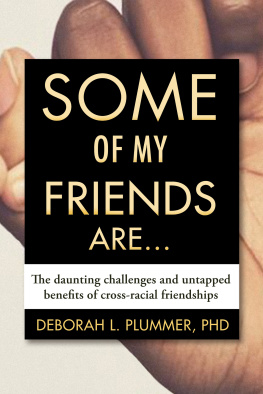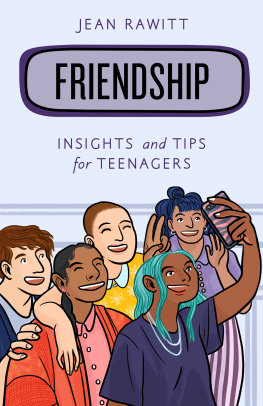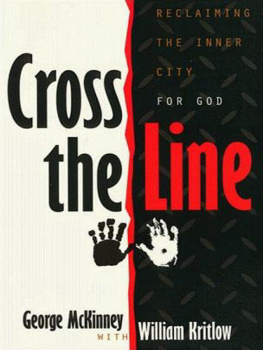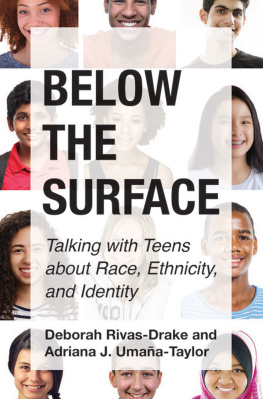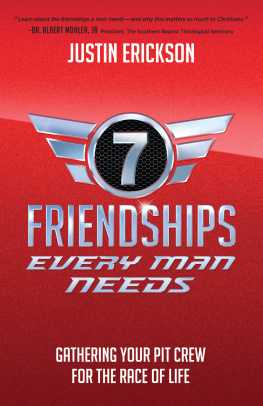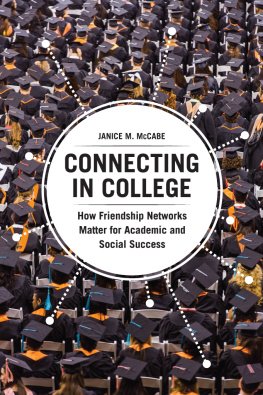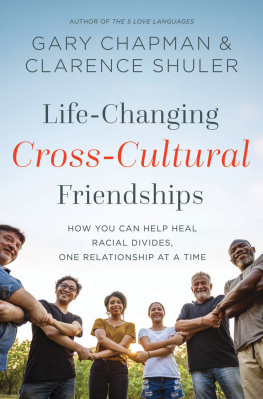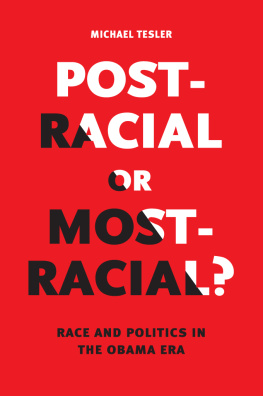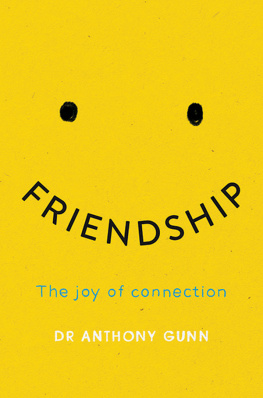Contents
Guide

To My Friends of Many Races
Introduction
CAN WE BE FRIENDS?
M y husband, Mike, is an engineera full-blooded engineer. Not only is it his career choice, but he also lives and thinks like an engineer. Often when we go out with my friends, the occasion is loosely planned and somewhat spontaneous. A phone call made that day inquiring about the evenings plans usually gets things started. Mikes friends (fellow engineers), on the other hand, plan events literally months in advanceeven if we are just meeting for dinner. Time, place, and confirmed reservations are emailed in a precise manner.
One Saturday, we met his friends Julie and Steve (both engineers) for dinner. Mike and I arrived at approximately 7:25 p.m. The 7:30 reservation was in Julie and Steves name, and the hostess informed us that they had not yet arrived. Knowing their habitual promptness, we decided to go to the table. I began to get nervous after fifteen minutes, since this is equivalent to waiting over an hour for someone in nonengineer land. My husband pulled out his printed email with the confirmed date and place. Yep, he said. We are in the right place. Besides, the reservation is in their name, remember? We asked the waitress again if anyone else was waiting for a couple. No, she assured us. Your friends are not here. After a half hour, I was convinced that something was dreadfully wrong. I checked our voicemail. No message. No missed phone call or text. We inquired again with the waitress, who checked with the hostess; she impatiently came back to tell us, We checked. Your friends are not here. As she was walking away, I turned to watch heronly to notice the back of Julies blond head and the shoulders of Steve, her husband, seated next to her. Not surprisingly, they were being told the same story. Apparently, the restaurant hostess assumed we could not be friends.
If we cannot even imagine individuals being friends across races in social settings, how can we envision and create a racially diverse and united America? Our natural preference for sorting people into categories of people who look like us, sound like us, and share our same values and beliefs leads us to remain socially segregated.
Now when I am the first to arrive at a restaurant to meet friends who are white, I openly let the restaurant know that I am waiting for some friends... and that they are white. Hostesses and matre ds always appear a bit taken aback. It might be that they feel my mention of race is unnecessary, or perhaps they are surprised that I have named the elephant and they are grateful. As my husband frequently says, Assumptions make asses out of you and me.
Nobody likes feeling like an ass, so it is time to examine our assumptions about others who are racially different from us. The time for talking about the elephant in our societal living room is long overdue. I am not talking about ugly, evil, racist remarks that most people abhor. I am talking about those thoughts in our heads that would cause us to be a bit embarrassed if people were reading our minds. Like believing that blacks are lazy and Hispanics are dumb. Or wondering what country Asians are really from when they tell you they are American. Or wondering how authentically Native is that professed Native American and how did they come to know they were Native American? Did they use Ancestry.com? Although annoying to those who represent the identity, this kind of thinking is common and interrupts building the capacity to be able to have a meaningful conversation with an acquaintance of a different race without having what we will later explore as an amygdala hijack.
From kindergarten through third grade, I attended a racially mixed school. From first through third grades I was friends with Kitty, who was white. Our friendship started because I loved her blue rhinestone-trimmed eyeglasses. I was also friends with Maria, who was Filipino. Our friendship was based on the fact that I coveted the windbreaker jackets she possessed in several different colors. I was friends with Carlos, who was Puerto Rican. Our friendship was based on my pure attraction to a cute boy who was also quite popular with everyone in the class.
By seventh grade my formerly racially mixed school had become predominantly black, as the inner-city neighborhood surrounding St. Thomas Aquinas Elementary School in Cleveland, Ohio, became subject to white flight, the large-scale migration of middle-class whites from racially mixed urban cities to the suburbs. My best friends, Gayle, Zoe, and Debbie, were black. Judy, one of the few remaining white kids, sometimes hung around with us. We would often take the bus from the East Side to downtown Cleveland, where we could walk around and window-shop, peering at the trendy, pricey outfits on the mannequins and talking about our dreams of one day being able to buy clothes like that. We each had about fifty cents for lunch, which in the 1960s meant you could get a full meal at McDonalds, consisting of a hamburger, a shake, and fries. Going to McDonalds for lunch was a special part of these Saturday outings, but on one particular day, Judy said there was a better place we could go for lunch. She suggested the cozy corner diner where she and her mom ate when they shopped downtown. On our trips without Judy, we had passed that diner often, always peering in the window and assuming we could never afford to eat there. Judy assured us that the food wouldnt cost us much more than McDonalds and would be even better, a claim I found hard to believe. Thinking that the worst thing that could happen would be that we would have to share an order of fries, we agreed to go.
Debbie, Gayle, and Zoe quickly claimed five empty stools along the counter, and motioned for Judy and me to hurry up and sit down before other patrons claimed the seats. The waitress was a tall white woman with a hairstyle like the actress Lucille Ball, who held special fascination for me because she was married to Desi Arnaz, a Cuban who often butchered the English language like my immigrant Spanish-speaking parents. I assumed that because she looked like Lucy she would be friendly, but her expression was one of annoyance. Still standing at the entry with Judy, I started to giggle, thinking about how quickly my friends had gotten themselves into trouble, as there was barely a minute between when Gayle, Zoe, and Debbie sat down and Judy and I entered the diner. While I assumed that my friends must have done something unimaginable to cause Lucy-look-alike to be so upset, Judy had quickly assessed the situation and knew what the argument was about between the waitress and three black teens. They were being asked to leave.
Judy loudly announced, making sure the others in the diner could hear her, If my friends are not allowed to eat here, then I wont either. We are taking our business elsewhere.
She dramatically motioned for us to leave. We were all stunned that what wed witnessed on television happening to black people in the South was actually happening to usgood Catholic school girls, dressed appropriately and with enough money to pay for lunch, albeit maybe without French fries.
What I learned from the diner experience was that there were individuals who happened to be white who were racist and there were individuals who were white that you could call friends. White friends like Judy would challenge those racist structures and support you in the struggle for equality. I havent seen Judy since those school days and have no idea whether as an adult her views remain the same, yet throughout my adult years I frequently recall her advocacy against racist practices on behalf of her friends of a different race.

